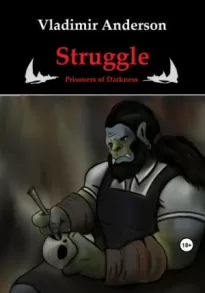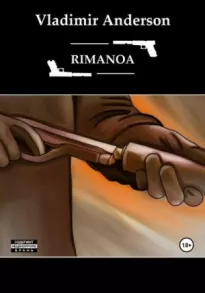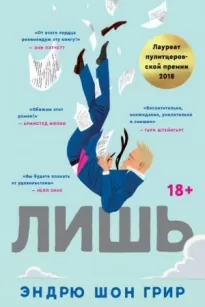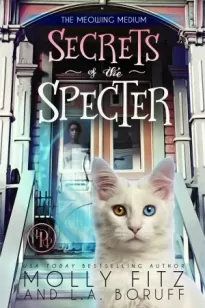The Librarian
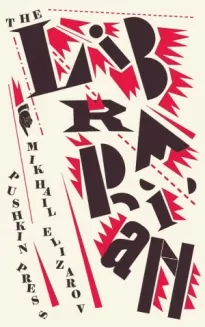
- Автор: Михаил Елизаров
- Жанр: Современная проза / Социальная фантастика
- Дата выхода: 2015
Читать книгу "The Librarian"
SHULGA
NIKOLAI YURYEVICH SHULGA was born in 1950. He grew up a shy, timid boy, was a good pupil in school, but suffered from indecisiveness. A catarrhal infection left Shulga with a facial tic and he underwent several unsuccessful operations that left deep scars. Shulga was very embarrassed by his problem, which was emphasized by unwieldy glasses. He had almost no friends. In 1968 Shulga went to a teacher-training college, but in the third year he abandoned his studies and enlisted for a Young Communist League construction project in the north, where, as he put it, “people are not valued for their appearance, but for their labour valour”.
Defying his own nature as a member of the intelligentsia, Shulga spent a couple of years as a labourer in oil prospecting. The work was heavy and boring, and people laughed at Shulga anyway because he, with his far from heroic appearance, explained his tic and scars as the legacy of an unsuccessful bear hunt.
In 1972 Shulga signed on with a group of fur trappers. The team also included two hunters and a guide from the local population. A blizzard drove them into a hut and interred them under snow for a month. Centuries of human experience in the taiga warned of the dangers of collective incarceration and the guide worked a spell so that the men wouldn’t start shooting each other in their claustrophobic desperation.
The folk magic failed, overwhelmed by a mightier enchantment, and it all ended in disaster. In addition to salt meat and buckshot, the previous occupant had left behind about a dozen books, jumbled together with newspapers—as kindling. Out of sheer boredom Shulga started reading Gromov. He found himself with the Book of Fury (By Labour’s Roads). He didn’t understand much about literature, and the dreariness of the text suited his temperament. And so Shulga fulfilled the two essential Conditions of Zeal and Continuity.
And after the Book had been read, death came to the hut. In an attempt to conceal the crime, Shulga dismembered the dead men and carried them out into the taiga. The remains were discovered by a search party and the bodies were identified. Shulga appeared in court. He didn’t deny his guilt and sincerely repented of what he had done, attributing his appalling actions to intoxication by the sable poison that the hunting party carried—to avoid damaging the precious skins, the little animals were poisoned. He claimed that somehow the poison had found its way into his food.
Shulga told the court that he was reading by candlelight when he felt a “change of state”, as if boiling water had run through his entire body.
Very probably an offensive comment had been cast in Shulga’s direction. For instance, someone said: “Stop wasting the candles on useless crap, you twitchy wanker.” Men rendered bitter and exasperated by enforced incarceration are not particularly choosy about how they express themselves, and cramped conditions offer plenty of occasions for crudity.
Shulga experienced a surge of superhuman aggression, grabbed hold of an axe and did away with the guide and the hunters. After a few hours his fury evaporated and the realization of what he had done hit home.
Shulga underwent the relevant tests and no traces of poison were discovered in his body. Taking into account his confession, his cooperation with the investigation and the claustrophobic psychogenic aspect of the crime, the death penalty was commuted to fifteen years in a strict-security camp.
Shulga’s fearsome offence was no help to him in the camp. Ignorant as he was of the finer casuistic points of criminal culture, when questioned he mentioned in his ingenuous answers that he had spent two years studying in a teacher-training college. Lanky and scrawny, with spectacles and a twitching cheek, Shulga had already been dubbed “Head Teacher” at the pre-trial detention centre. He was a perfect target for mockery. Already depressed by his own unattractive appearance, he determined his own status in the camp: somewhere between a downtrodden “skivvy” and a lowly “gofer”—a perpetual “cleaner”.
Shulga was tormented by despair and fear. He was unable to put anything right in his life. On the front lines it was genuinely possible to make the move from coward to hero by performing some feat of heroism. But he didn’t know of any feat or action of any kind that would improve his position in the criminal world, and probably no such action even existed.
Shulga mostly befriended the same kind of misfortunates as himself, the “skivvies” and the “abused”. His neighbours in the barracks, who were “regular guys”, were loath to associate with him, realizing that he was sinking down the hierarchy, and they tried to avoid any unnecessary contact with a man whose excessive helplessness could lead at any moment to his being awarded “a plate with a hole in it”, that is, a demotion to the most despised and abused level of the prison hierarchy.
Shulga was unfamiliar with the prison-camp caste structure. Hoping to get his sentence reduced and receive privileges of some kind, he took the bait offered by the camp administration and joined the crime prevention section. And then he discovered that he had joined the ranks of the “scum”—that was what convicts who agreed to collaborate with the camp authorities were called.
Shulga became a member of the “team”. Wearing his armband on his sleeve, he stood watch at the checkpoint between the “living zone” and the “production zone” of the camp. Bearing in mind his liberal education, incomplete as it was, and his state of health—the tic had grown worse—Shulga was moved to a job in the library. Things were a bit easier there.
Shulga had been in prison for more than five years. In his free time he read compulsively, devouring anything and everything in order to occupy his mind. His fear had diminished somewhat and at moments of inner calm or in the peace of the night he often thought about what it was that had turned him, a good-natured and timid man, into a murderer. His reminiscences led him to that little book with the dirty grey binding that had perished in the fire.
Shulga found Gromov’s short novel Fly On, Happiness! in the prison-camp library. It was a completely different book, not the one that he had read, but he still remembered the author’s name. On Sunday evening, with his typical thoroughness, Shulga read the whole of the Book of Power. At a specific moment he sensed the inner transformation that had come over him, and his mind was suddenly filled with a pulsating awareness of his own importance. Shulga liked this new sensation very much and, even more importantly, he realized why it had happened and where it had come from.
Shulga observed that, thanks to the Book, he was capable of influencing people around him and imposing his will on them. Naturally, it wasn’t the world outside that had changed, but the man who had read the Book. A mysterious force temporarily transformed Shulga’s facial expressions, the look in his eyes and his bearing, operating on his opponent through his gestures, tone of voice and the words that he spoke. You could say that the Book helped Shulga to recruit the souls of those who were part of his social circle—the “scum”, “skivvies”, “gofers”, “stooges” and “lowlifes” (the downtrodden and sexually abused)—all the untouchables of the criminal world.
Meanwhile in the camp the old thieves’ elite was gradually supplanted by a generation of young bandits who no longer honoured the unwritten code of previous times that forbade the humiliation of anybody at all for no particular reason. The school of excess that had been born in the low-security camps invaded the relatively smooth-running strict-regime environment. Life became much more bitter for the lower castes. Downtrodden convicts were humiliated and even sexually abused for mere amusement, out of boredom. The reason for it could be anything at all—a cute appearance, weakness, excessive intellectual refinement.
One day an absolutely outrageous incident occurred in the camp when the lowlife Timur Kovrov “hit on” a young, promising criminal boss—Kovrov flung himself on the other man and started licking him. The high-status thief beat the lowlife almost to death, but he forfeited his previous authority for ever; even worse, now tainted himself, he joined the ranks of the outcasts and soon afterwards was found hanged by his own hand. Kovrov recovered in hospital and rumour has it that his sentence was reduced because of his serious injuries.
Probably no one even noticed that two days before this strange attack Shulga had a talk with Kovrov and urged him to commit the act. This Kovrov had been reduced to the status of a lowlife through trickery—as a novice he had been sat on the “sod’s seat” in the camp cinema. And certainly no one remembered that previously the young criminal boss had openly mocked and bullied Shulga, threatening to “shaft the four-eyed brainy scumbag up the back entrance”.
In this way Shulga invented his own means of defence against the criminal world—employing the inarticulate, filthy, tormented creatures with holed plates as badges of their humiliation and alienation, whose lot in life was merely to open their mouths and assume the pose.
In the space of a month several respected criminal bosses were hit on—all the ones who had ever molested Shulga. It should be noted that high-ranking thieves reduced to low status by a “kamikaze lowlife” didn’t live long afterwards; they slashed their veins and hanged themselves, otherwise their former victims would have raped and abused them with highly inventive cruelty…
Shulga read the Book regularly and every day it lent him an artificial, but nonetheless effective, charisma. Even seasoned convicts, quite unable to understand what was happening to them, couldn’t stand up to Shulga.
Word that he was inciting the lowlifes against the brothers reached the big boss himself—there were informers among the outcasts. The big boss was puzzled by how a worthless scumbag like that could suddenly have started radiating such psychic power. He had a gut feeling that Shulga was cheating in some incomprehensible fashion—and after pondering for a long time, he drew the right conclusion. That night the Book was stolen from Shulga. The big boss never figured out its secret, but essentially he guessed correctly about the source of the mysterious spell.
In the morning Shulga discovered his loss. And the barracks-hut skivvy passed on the message that the elders had summoned the Head Teacher for a parley. Shulga guessed how the meeting would end, but repeated experience of the sensation of power had turned him into a quite exceptional individual.
The showdown took place in the forestry plot. It was February and darkness came early. The big boss was not expecting any resistance. He only had one fighter from his immediate entourage with him, plus a “bull”, a man who had gambled away his life and become a “torpedo”—he was the one who was supposed to take out the upstart Head Teacher. But the big boss wasn’t expecting things to get that far. He intended to suggest that Shulga hang himself, so that the “bull” wouldn’t have to take the sin on his own soul. The noose had already been set up on a convenient branch.
Shulga looked so limp and jaded that no one even thought of checking to see if he had a weapon. But they should have. Hidden up his sleeve he had a heavy section of steel pipe, stuffed with sand to give it extra weight.
Gratified to note that the Head Teacher was no longer pulsating with self-confidence, the big boss was convinced yet again that he was dealing here with a faker who pulled off his trickery by using some kind of unusual hypnosis.
After hearing his sentence pronounced, Shulga merely asked where the Book was now, promising to reveal its fantastic secret. Intrigued, the big boss took the Book out.
Without hurrying, Shulga scooped up a handful of snow and waited for it to thaw into water, then shook his sleeve so that the pipe slid down into his hand and froze solid to his wet palm. He crashed the first blow down onto the head of the “torpedo”. The two thieves drew their knives, but the crushing weapon demonstrated its superiority. Shulga sustained serious damage too. He had just enough strength left to pick up the Book before he passed out.
There was a secret witness to the duel—the prisoner Savely Vorontsov, who had been under Shulga’s magical influence for a long time. Sensing that something was wrong, he had decided to follow Shulga, and had been proved right. Vorontsov’s help could not have been timelier for the librarian, who was bleeding to death. Prising the length of pipe out of Shulga’s hand, Vorontsov flung it over to the dead “torpedo” and raised the alarm.
After some stage-setting the scene looked different: the “bull”, who had lost at cards, had taken violent revenge on the criminal elite and Shulga had been injured when he tried to intervene.
The camp authorities didn’t really believe in this fairy tale, but they accepted it as their primary scenario, especially since there were only two witnesses—Vorontsov and the injured Shulga—and they both said the same thing. Shulga spent a month in a hospital bed and then returned to the camp.
Shulga was able to thwart a second attempt on his life by preventative measures. The thief who was preparing to attack that night was “tainted” that same day by the lowlife Volkov, who died from knife wounds on the spot, but saved his master.
The thieves wisely decided not to tangle with Shulga any more. They couldn’t show him respect, but it would have been stupid to mess with a man who could have an authoritative criminal boss shamed with a single word.
After that Shulga’s life was subjugated to an unvarying routine. In the morning he read through the Book and for the rest of the day he lorded it over the skivvies and abused lowlifes. The authorities thought it best not to interfere in this situation. Shulga’s role as a social counterweight had brought the camp the calm and order that the authorities needed, and for that he was given secret support. As long as Shulga remained in the camp, the thieves tried not to commit any more outrages, and all the castes coexisted more or less peacefully.
Shulga’s closest associates in his future library were the former lowlife Timur Kovrov, and the skivvies Savely Vorontsov, Gennady Frolov and Yury Lyashenko. They were released several years earlier than Shulga, who got out in 1986 after serving fourteen years of the fifteen to which he had been sentenced.
Shulga sought out his old camp comrades, and together with them he immediately began strenuous efforts to collect the Books, since life itself had appointed him a “librarian”. He didn’t share the secret with anyone at first, speaking only in allusions and innuendo. In fact Shulga didn’t disclose the entire truth for a long time, even to the devoted Kovrov. When the first Book of Memory and Book of Joy were found, Shulga was always present at the readings, insisting that the Books’ effect was the result of his own presence.
Shulga surrounded himself with ordinary human material that he dredged from the depths of society, from the low dives and rubbish dumps. Former “shit-shovellers”, “scumbags” and “cocksuckers” became a dangerous force under Shulga’s leadership. Their prison-camp humiliation merely gave them a sense of solidarity, an implacable hatred of society and a single great desire for vengeance—on anyone, on everybody at once. This contingent was the main difference between Shulga’s library and other structures of a similar nature.
As opposed to Lagudov, who had put his money on the intelligentsia, Shulga based himself on the outcasts. In addition to the humiliated strata of criminals, recruits were also gathered from among disenchanted members of religious sects, street bums, bottle collectors, low-grade lumpens who had taken to drink and handicapped individuals who were capable of working. We know that the library was joined by an entire workmen’s cooperative of deaf and dumb carpenters—fifteen hulking great men who were very handy with axes. At the beginning of the 1990s the number of readers had passed the 150 mark.
To finance the clan, its “civilians” skilfully practised their customary professions of begging, petty theft and extortion. The “infantry”—dedicated trackers—got hold of the Books.
Shulga was not mistaken in his choice of social milieu. It was a delusion on the part of the greater society to assume that its outcasts were weak, unreliable and cowardly. On the contrary, the status of outcasts bordered on that of the chosen. Shulga’s men, who communed with the mystery every day, were in their own way no less spiritual and intellectual than Lagudov’s engineers. For them Gromov’s books opened the door into a new universe—a secret, awesome universe, full of riddles and thrilling mystery; there was a struggle taking place there too, there were many dangerous adversaries, there were codes of law for life and for battle, and there was a place for nobility and valour. Everything was decided in honest combat, face to face, like in the olden times. There was an emotional reward, far more powerful than the lift from vodka—hope and faith in the as-yet-unknown gifts that would be bestowed by Books to be found in the future, the Books that had not yet been read.
But of course, not everything went smoothly. In 1989 the library suffered a schism, initiated by Frolov and Lyashenko. They hid the Books of Power that had been found on one of the numerous search expeditions. Frolov and Lyashenko were the leaders of that expedition and, once they got their hands on the books, they wanted leadership for themselves.
Shulga realized that any harsh intervention would only make things worse. A schism was inevitable, and in order to avoid its ending in bloodshed, Shulga decided to lead it himself. A general meeting was held, at which the establishment of two more libraries was announced.
The division went through peacefully. According to the rumours, Frolov took forty men away to Sverdlovsk, and about thirty followed Lyashenko to Sochi. Shulga wasn’t mean with the new librarians; he gave each of them some start-up capital—three Books of Memory and three Books of Joy each—so that the new libraries would have no difficulty in recruiting readers.
Of the “old guard” from the prison camp, Kovrov and Vorontsov remained with Shulga. The clan had been reduced by half, but there was no immediate prospect of any threat to Shulga’s absolute authority. Kovrov and Vorontsov were both reliable and would never think of trying to take his place. Shulga’s library possessed six Books of Memory, nine Books of Joy, four Books of Endurance, a Book of Fury and a Book of Power.

